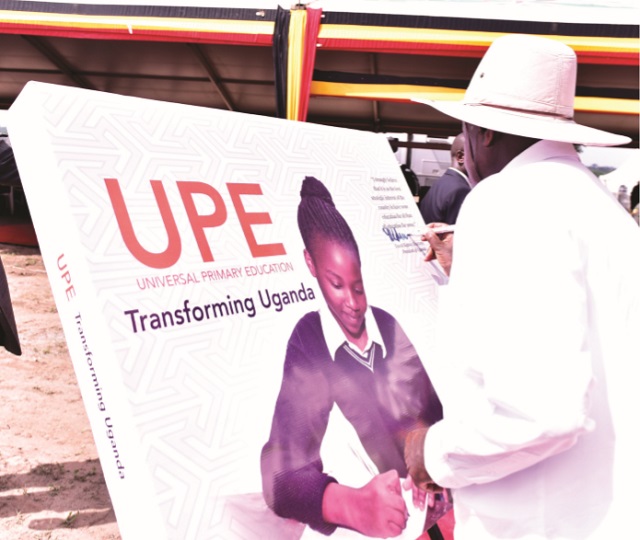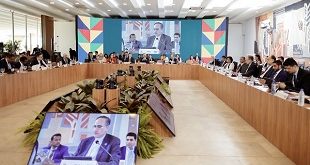
Focus moves to raising quality of learning
Kampala, Uganda | The Independent | In 2018, schools under the Universal Primary Education (UPE) sat more students for Primary Leaving Examinations (PLE) than non-UPE schools; 476,130 (or 70.9%) out of 671,923 candidates. It was another sign that it was as right to start UPE 20 years ago as it makes basic education accessible to every child.
As a result, UPE enrolment has soared from about 3.06 million pupils in 1996 to about 8.84 pupils in 2017 with more girls going to school for the very first time than before.
Such successes are the subject of a commemorative book by the Ministry of Education and Sports titled `UPE (Universal Primary Education): Transforming Uganda’.
The 226-page, coffee table style volume is a near-full account of how UPE was born, the people who implemented it, the key policy frameworks, the critical investments, and its impact on the education of girls, special needs learners, refugee and host communities, business and economy, household health and earnings, among many others.
The Minister of Education, Janet K. Museveni, in the foreword to the book notes that UPE has shown potential to brighten Uganda’s future. She explains how it opens various paths to opportunities for pupils to acquire “knowledge and skills that will make them self-reliant adults that meaningfully contribute to socio-economic transformation of our country”.
For a long time, it has been said that introducing UPE was motivated by politics; given how President Yoweri Museveni unexpectedly announced it in May 1996 at a campaign rally in Masaka.
However, in the book, former education minister Namirembe Bitamazire says it was preceded by proper and well-researched planning. Success was expected but challenges too were anticipated. Bitamazire was minister of state for primary education between 1998 and 2004 and directly charged with the implementation of UPE. Her zeal and passion earned her the pet title ‘Mama UPE’.
Dr John C. Muyingo, a long time educationist, who is currently the state minister for higher education, makes the same point.
“The argument that government was not prepared for UPE is clearly not true. There were clear roadmaps and planning, unlike what most people think. The government did not start UPE from the blue,” he says.
To be sure, UPE was neither the brainchild of Museveni personally nor his government’s collectively – a fact both are quick to concede. The idea was first introduced in 1962 by the Uganda People’s Congress (UPC). But, the NRM says, earlier governments failed to implement UPE because they could not put the interests of citizens first and prioritise them. Museveni says to prioritise is both a skill and a discipline which the NRM does by listening to what ails the wanainchi.
 The Independent Uganda: You get the Truth we Pay the Price
The Independent Uganda: You get the Truth we Pay the Price



